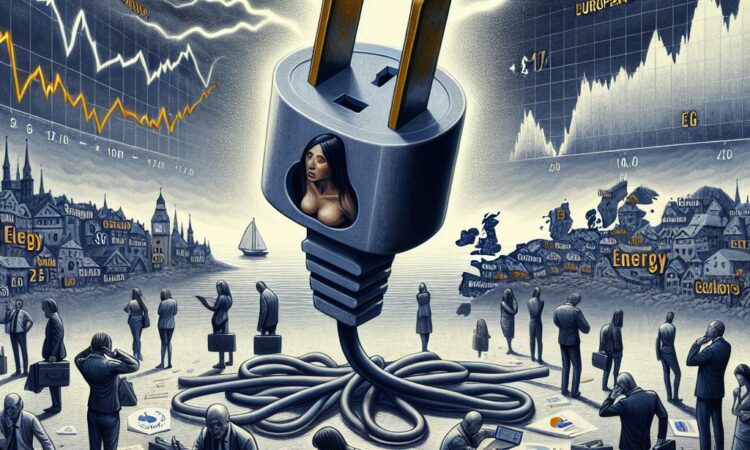The European Economy and the Energy Crisis
The European economy is facing a major challenge in the form of the energy crisis. The war in Ukraine has led to
a significant reduction in Russian gas supplies to Europe, which has driven up energy prices and raised concerns
about shortages. This crisis has serious implications for multiple sectors and countries within Europe, affecting
both businesses and households alike.
To understand the gravity of the situation, the image depicted presents a visual representation of the impact of
the energy crisis on the European economy. The image highlights the interconnected nature of key sectors such as
manufacturing, transportation, and residential energy consumption. It showcases factories operating at reduced
capacity due to energy shortages, resulting in decreased production output and potential job losses. The
transportation sector is also affected, with limited fuel availability leading to logistical challenges and
higher costs for goods transportation.
Moreover, the image underscores the impact on households, depicting a family struggling to heat their home during
the winter months due to high energy prices. It emphasizes the growing concerns among citizens who are
experiencing financial strain and are unable to afford the rising energy expenses. This situation not only adds
to the economic burdens of individuals but also poses potential health risks in extreme weather conditions.
Additionally, the image portrays the urgent need for alternative energy sources to mitigate the effects of the
crisis. It showcases renewable energy infrastructure, such as wind turbines and solar panels, symbolizing the
potential solutions to reduce dependency on Russian gas supplies. Transitioning towards sustainable energy
sources is crucial for enhancing energy security, reducing carbon emissions, and fostering economic resilience in
the European continent.
In conclusion, the energy crisis in Europe presents a significant challenge to the European economy. The image
serves as a thought-provoking prompt, highlighting the far-reaching consequences of the crisis. It emphasizes
the need for proactive measures to diversify energy sources, invest in sustainable technologies, and secure the
energy needs of businesses and citizens, thereby paving the way for a resilient and prosperous European economy.

